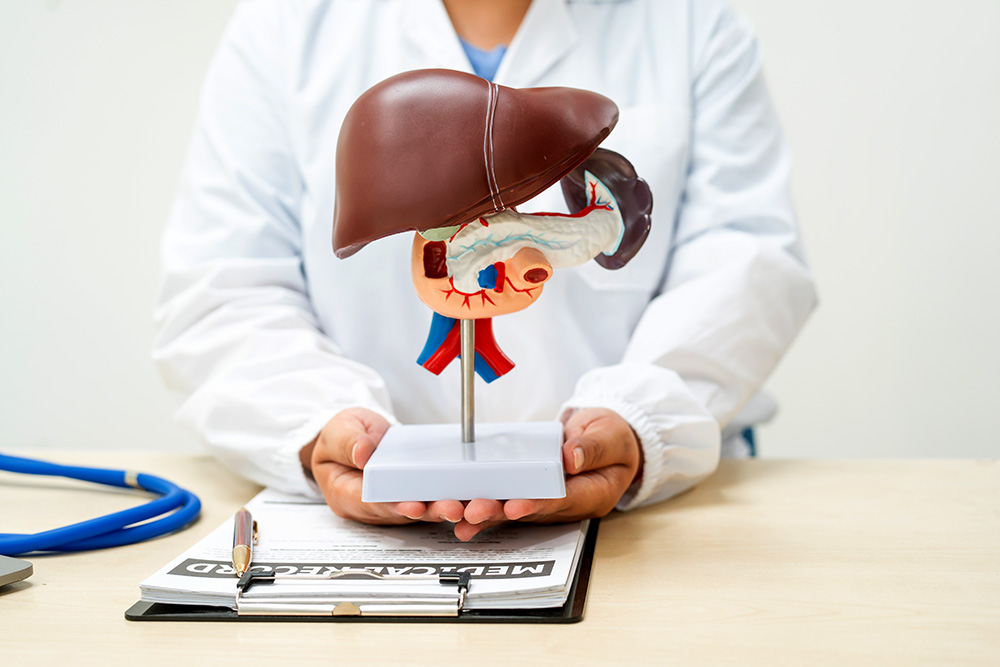Your liver plays a vital role in your overall health. However, alcohol, antibiotics, obesity, high blood pressure, and more can weaken your liver with age. Many older individuals live with their liver working overtime. As time progresses, you might be dealing with a case of liver disease. This article will discuss how it functions in your body, as well as common risk factors for liver disease.
Functions of the Liver
The liver has many functions, many of which are essential to maintaining your body’s and blood’s health. Hepatic functions (those of the liver) help regulate much of your body’s natural filtering processes. Studies have shown that the liver is responsible for over 500 vital bodily functions. A few of the liver’s vital functions include:
Bile production – Bile breaks up fats and helps with digestion while transferring the additional waste into the intestines.
Blood plasma – Proteins that create blood plasma are formed in this organ.
Amino acids – The liver regulates the levels of amino acids in the blood. Amino acids allow the body to produce protein compounds.
Hemoglobin recycling – Hemoglobin is a protein that carries oxygen to all of the cells in your body through the bloodstream. It metabolizes and recycles proteins so they can be reused.
Blood filtering – It filters out and removes bacteria from the bloodstream.
Ammonia processing – Ammonia is converted into the urinary waste product urea by the liver.
Bilirubin removal – The liver also clears Bilirubin from red blood cells. Bilirubin turns your eyes and skin yellow as it accumulates (jaundice).
Major Risk Factors for Liver Disease
There are 4 major risk factors for Liver Disease. While they are not the only ones, they are the most common. They are listed below.
Alcohol Use and Abuse
Alcohol use can lead to damage and the development of Liver Disease. When you drink more alcohol than your body can process, your body converts it to fat in the liver. This can hinder the liver’s functions and lead to cell death. When this continues to happen, it can put further strain on the organ. Generally, you shouldn’t have more than one alcoholic beverage a day for women or 2 or fewer for men. Excessive drinking can lead to fatty buildup over time, and binge drinking often can speed up this process.
Obesity & Fatty Liver
Fatty Livers aren’t just caused by alcohol. Non-alcoholic fatty liver disease (NAFLD) is a type of liver disease caused primarily by excessive weight gain and other metabolic health issues. Those at higher risk of developing NAFLD include those with high cholesterol, high blood pressure, diabetes, and obesity. Losing weight and getting your BP, cholesterol, and blood sugar under control can go a long way in preventing damage and liver disease.
Some Supplements and Medication Side Effects
Some medications and supplements have been linked to declining liver health and even liver disease. This will often depend on the dose and frequency of use. For example, frequent use of Acetaminophen, an OTC painkiller, can lead to increased liver toxicity. However, you may not have issues if you use these products as directed. This includes following instructions such as taking a supplement or pill with food or avoiding alcohol while taking the medicine.
Additionally, some antibiotics can be a factor in hepatic issues. While this isn’t widespread, it is important to understand this. When prescribed antibiotics by a doctor, be sure to follow usage instructions.
Non-prescription supplements can also create problems in the liver. High concentrations of Vitamin A and niacin, for example, can create hepatic issues. Some studies suggest that products containing green tea extract, linoleic acid, and more can affect this organ. Be sure to discuss any and all medications and supplements you are taking with your physicians.
Viruses and Infections Linked to Liver Disease
Certain viral infections are linked to poor hepatic health. This can, down the line, lead to liver disease or liver cancer. Hepatitis B and C (HBV & HCV) have both been linked to liver disease, for example. HBV vaccines are available, and most children in the US have been inoculated with them. However, some older individuals may not have received these vaccinations. Additionally, doctors recommend getting tested for HCV at least once. Talk with your primary care physician about your options regarding Hepatitis.
Safe Harbor Healthcare Services does not provide medical, healthcare, or financial advice via articles. This material has been prepared for informational purposes only. It is not intended to provide and should not be relied on for advice.
Safe Harbor Healthcare Services has provided excellent home care on Staten Island since 1967. Our services help older and disabled individuals live safely and independently while giving their families the peace of mind they need. For more information, contact us or call (718)-979-6900.

